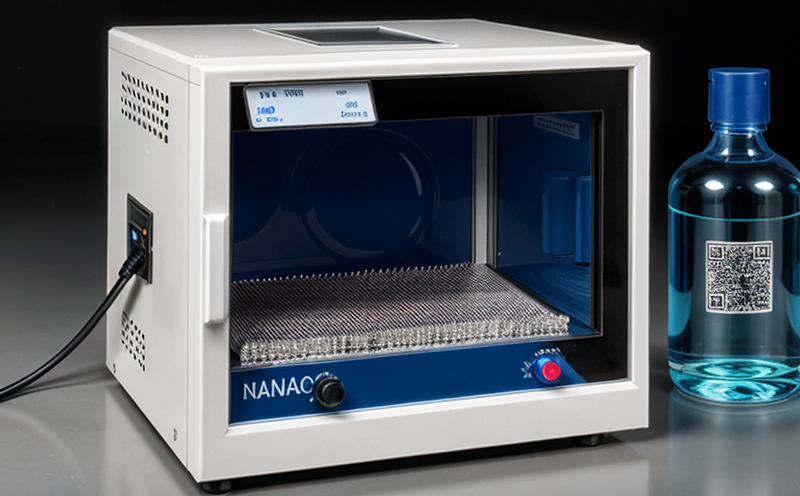DIN CEN ISO TS 80004 Nanomaterial Characterization Testing
The DIN CEN ISO TS 80004 standard provides a comprehensive framework for the characterization of nanomaterials. This service is crucial for ensuring that nanomaterials meet stringent quality and safety standards, which are essential in various industries including pharmaceuticals, electronics, and environmental science.
The process involves multiple steps to ensure thorough analysis and accurate reporting. Specimens undergo rigorous preparation methods tailored to the specific nature of nanomaterials. This includes dispersing materials into a suitable solvent or matrix for better visualization under advanced microscopy techniques.
Key instruments used in this service include Transmission Electron Microscopy (TEM), Scanning Electron Microscopy (SEM), and Atomic Force Microscopy (AFM). These tools provide detailed information about particle size distribution, morphology, and surface characteristics. Additionally, Dynamic Light Scattering (DLS) is employed to measure the hydrodynamic diameter of nanoparticles.
Chemical composition analysis plays a significant role in this testing protocol. Techniques such as Energy Dispersive Spectroscopy (EDS) attached to SEMs or Inductively Coupled Plasma Mass Spectrometry (ICP-MS) are utilized to determine elemental and isotopic compositions accurately.
The final step involves data interpretation and reporting based on international standards like ISO TS 80004. This ensures consistency across different laboratories worldwide, facilitating easier comparison of results and enhancing trust among stakeholders involved in nanotechnology research and development.
Understanding the importance of this standard helps organizations comply with regulatory requirements while maintaining high-quality products. By adhering to these guidelines, companies can ensure their nanomaterials are safe for use and meet industry expectations regarding performance and reliability.
Why It Matters
The DIN CEN ISO TS 80004 Nanomaterial Characterization Testing is vital because it ensures that nanomaterials are accurately characterized according to internationally recognized standards. This precision is critical for several reasons:
- It guarantees compliance with regulatory requirements and industry best practices.
- Accurate characterization leads to safer products by identifying potential hazards early in the development process.
- Consistent results across different laboratories enhance trust within the scientific community and among end-users.
The precision provided by this service allows for better decision-making, whether it's choosing appropriate raw materials or optimizing manufacturing processes. It also supports innovation by enabling researchers to explore new applications safely and effectively.
International Acceptance and Recognition
- The DIN CEN ISO TS 80004 standard is widely accepted in Europe, where it serves as a crucial tool for nanomaterial characterization. Its adoption reflects the region's commitment to excellence in scientific research and product safety.
- This standard has gained recognition beyond Europe; many countries around the world have embraced its principles due to their reliability and comprehensiveness.
The widespread acceptance of this standard contributes significantly to global collaboration on nanotechnology projects. By using a universally accepted framework, researchers can share data more effectively, leading to faster advancements in technology and medicine.
Competitive Advantage and Market Impact
- Adhering to DIN CEN ISO TS 80004 standards positions a company as a leader in quality and safety, which translates into enhanced brand reputation.
- By ensuring compliance with these rigorous standards, businesses can gain competitive advantage over competitors who may not meet such high levels of scrutiny.
The market impact of this service extends beyond individual companies; it influences entire industries by setting a benchmark for quality. Consumers increasingly demand transparency and assurance regarding the safety of products they purchase. Compliance with DIN CEN ISO TS 80004 helps meet these expectations, fostering customer trust.





